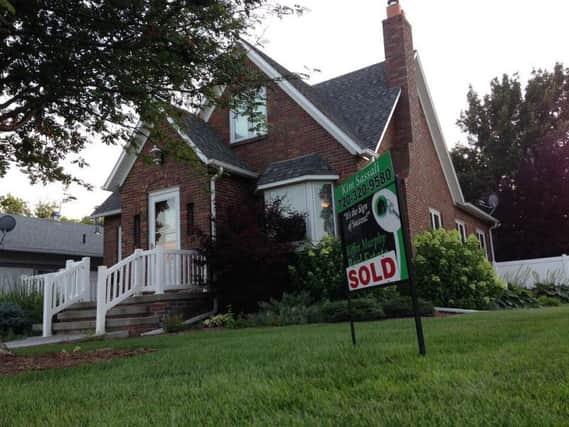Scottish house sales skyrocket as London's plummet after Brexit referendum


House sales in Scotland are up four per cent since the Brexit referendum - the strongest performance in the UK - while sales in some parts of London have crashed by more than 40 per cent, according to a new analysis.
Yorkshire Building Society compared house sales numbers in the 12 months leading up to the vote to leave the EU in June 2016 with the 12 months leading up to May this year.
Advertisement
Hide AdAdvertisement
Hide AdComparing these two periods, it found sales in Scotland were up four per cent, with Wales recording the second strongest performance with a rise of two per cent. London was the worst performing region, with a 28 per cent drop.
Across the UK generally, The Yorkshire found that house sales have decreased by nine per cent when comparing the two periods.
Six out of the 10 best performing local areas were in Scotland. East Lothian recorded an increase of 23 per cent, South Lanarkshire 23 per cent, and Dumfries and Galloway 17 per cent.
House sales were up 16 per cent in North Ayrshire and 15 per cent in both Renfrewshire and the Borders.
Political uncertainties
By contrast, the London boroughs of Brent, Kensington and Chelsea, and Westminster have seen sales fall by 43 per cent, 42 per cent and 39 per cent respectively.
The Yorkshire said political uncertainty around Brexit could be a key factor for some when considering major purchases such as buying a home.
But some home buyers may decide that while others are holding back to wait for more certainty, now could be a good time to step in and get a deal.
Nitesh Patel, Yorkshire Building Society’s strategic economist, said: “The housing market has become more stagnant in the UK as a whole since the EU referendum.
Advertisement
Hide AdAdvertisement
Hide Ad“But when we break down the analysis to a regional and local level, the picture becomes more complex.
“Numbers of sales in London, the South East, the East of England and the East and West Midlands are all significantly down in the past 12 months compared with the year before Brexit.”
He said the London market may have been affected particularly by the political uncertainty as the capital tends to attract high numbers of investors and overseas buyers.
Mr Patel continued: “But the drop in sales isn’t solely to do with confidence - high house prices and low levels of supply in London and the South East are also constraining activity.
“The changes to how landlords are taxed and regulatory measures have also contributed to the fall in sales.
“There’s been significant house sales growth in isolated parts of the North, Wales, Scotland and Northern Ireland.”
Explaining what could be behind the increases in house sales, Mr Patel said increases in real wages and record levels of people in full-time employment have helped making buying a home generally more affordable.
Initiatives to support those wanting to get on to the property ladder, such as Help to Buy and abolishing stamp duty for first-time buyers have also helped to boost sales, he said.
Advertisement
Hide AdAdvertisement
Hide AdMr Patel said: “It should be noted that consumer confidence is a key factor in buying big ticket items such as homes and this downturn is likely to be a temporary phenomenon which will continue while uncertainty around Brexit exists.”
